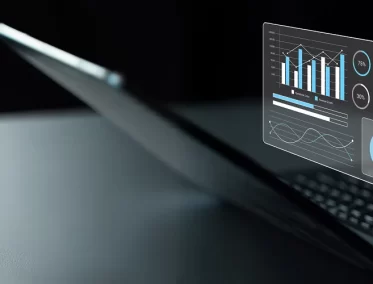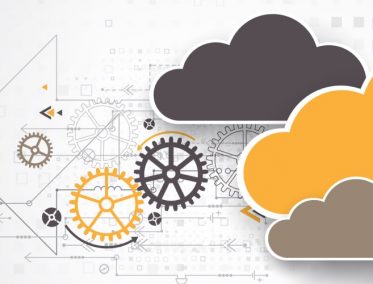Note: IT Convergence provides ERP system guidance and does not offer tax or legal advice. See full disclaimer below.
Brazil, renowned for possessing one of the most complex tax frameworks globally, is poised for a transformative shift. The forthcoming replacement of PIS, Cofins, ICMS, and ISS with the new CBS (Contribuição sobre Bens e Serviços) and IBS (Imposto sobre Bens e Serviços), combined with an Excise Tax (Imposto Seletivo), represents the most ambitious consumption tax reform in decades.
Initiated by the approval of Constitutional Amendment No. 132 in 2023 and regulated by PLP 68/2024 and PLP 108/2024, this reform is structured to progressively transition between 2026 and 2033.
For organizations operating Oracle E-Business Suite (EBS) and similar ERP platforms in Brazil, this reform is not merely a fiscal adjustment; it constitutes a fundamental reengineering of tax logic, reporting obligations, and system compliance frameworks.
The upcoming CBS/IBS reform will not only impact companies operating inside Brazil. It will also affect companies outside Brazil that conduct business with Brazilian entities — whether through the sale of goods, provision of services, or digital transactions.
Regardless of industry, size, or geographic location, any company engaging with Brazil’s economy must prepare for new compliance obligations, transaction processing rules, and tax reporting structures under CBS and IBS.
Brazil Tax Reform 2026 (CBS and IBS): What’s Changing?
The CBS and IBS bring forward a unified dual VAT model intended to simplify Brazil’s tax system while aligning it with international standards:
- Broad Tax Base: Goods, services, and digital goods will now share a unified taxation model.
- Destination-Based Taxation: Taxes are applied where goods and services are consumed, not produced.
- Full Input Credit System: Input taxes can be fully credited but must be verified during the transaction settlement phase.
- Real-Time Compliance: Tax obligations are embedded within electronic fiscal documents, shifting compliance from post-factum reporting to real-time validations.
- Mandatory Split Payments: Payment systems must automatically segregate the tax portion and remit it directly to authorities.
This redesign reduces litigation, fosters transparency, and streamlines processes—but demands major systemic changes inside ERP platforms.
Why the Tax Reform is a Big Deal for ERP Systems
Brazil’s move to CBS/IBS isn’t a simple update—it’s a fundamental change in how transactions are processed, reported, and reconciled.
| Current State | New CBS/IBS Model |
| Fragmented, multi-layered taxes | Unified dual VAT (CBS + IBS) |
| Origin-based taxation | Destination-based taxation |
| Delayed and manual reporting | Real-time declaratory e-invoicing |
| Manual tax payments | Automated split payments |
| Limited input credit scope | Full, transaction-settlement-based credit validation |
Without significant adjustments, legacy ERP platforms risk failing to:
- Correctly apply destination-based taxes.
- Validate real-time tax credits.
- Manage split payments embedded in Accounts Payable/Receivable.
- Issue mandatory electronic fiscal documents under the new regime.
Critical ERP Version Requirements
- Oracle customers must also be mindful of technology prerequisites:
- Oracle EBS versions below 12.2.6 will not support CBS/IBS-related patches or mandatory updates.
- Oracle ERP Cloud (SaaS) users will need to implement new functionalities to handle CBS/IBS, split payments, and declaratory invoicing.
- Oracle Tax Partners and third-party tax solutions will also require critical updates and revalidations.
Companies on older ERP versions face an urgent decision: modernize now or risk falling out of compliance as Brazil enforces the new tax system.
Timeline: The CBS/IBS Reform Rollout
Businesses must synchronize ERP upgrades to Brazil’s gradual but firm transition schedule:
| YEAR | MILESTONE |
| 2023 | Constitutional Amendment No. 132 passed |
| 2024 – 2025 | Regulation via PLP 68/2024 and PLP 108/2024 |
| 2026 | Pilot year for CBS/IBS (0.9% and 0.1% rates, respectively) |
| 2027 | Full enforcement of CBS; extinction of PIS and Cofins |
| 2029 – 2032 | Gradual transition of ICMS and ISS into IBS |
| 2033 | Complete rollout: full CBS and IBS in place; ICMS/ISS extinguished |
Failure to prepare early risks significant disruption, financial penalties, and missed tax credit opportunities.
Why Oracle EBS Customers be Prepared for Brazil Tax Reform 2026
Oracle EBS, while historically localized for Brazil’s tax peculiarities, was not natively designed to accommodate CBS/IBS models:
- Item-Level Tax Complexity: New mappings of NCM codes, CBS/IBS rates, and input credit eligibility required.
- Integrated Receiving (RI) Rework: Fiscal and physical receiving processes must align with split payment and real-time fiscal document mandates.
- SPED and Nota Fiscal Compliance: Integration with updated SPED reports and fiscal document standards.
- Multi-Entity Structures: Brazilian organizations often mimic multinational setups within a single country, requiring ERP frameworks to treat every CNPJ as a distinct operational entity.
**Cloud customers, especially those on Oracle Cloud 25c, must also prepare for patch implementations and functional extensions tailored to CBS/IBS compliance.
To dive deeper into how Oracle EBS customers can adapt to these changes, download our free eBook for actionable insights to keep your ERP system compliant and audit-ready.
Split Payments, Cashback, and ERP Impact
1. Split Payment Mechanism
In the CBS/IBS model, a portion of each transaction’s payment will be automatically directed to tax authorities.
Oracle EBS must:
- Manage intelligent split allocation during Accounts Payable settlements.
- Handle transaction-by-transaction reconciliation for proper input tax credits.
- Integrate with updated Brazilian fiscal payment protocols in real-time.
2. Cashback Mechanisms
ERP platforms must support tax refund (cashback) programs targeted at low-income families, automating refund validations tied to income thresholds.
This new administrative layer compounds the need for tight system controls, audit trails, and integrated financial data flows.
How IT Convergence Simplifies CBS/IBS Compliance
With over two decades of helping multinational companies succeed in Brazil’s unique fiscal environment, IT Convergence delivers a proven, modular framework for CBS/IBS readiness:
- ERP Gap Assessments: Tailored evaluations against CBS/IBS compliance benchmarks.
- Localization and Tax Rule Reconfiguration: From mapping new rates to updating item tax codes and credit logic.
- Integrated Receiving Modernization: Realignment of fiscal and physical processes for the split payment economy.
- Third-Party Integrations: Seamless interfaces with fiscal compliance tools like Synchro.
- Future-Ready Roadmaps: Transition plans supporting businesses through all reform stages until full 2033 compliance.
Whether you’re operating fully on-premises or moving toward the Cloud, ITC ensures your Oracle ERP system stays audit-proof, efficient, and competitively advantaged.
Future-Proof Your ERP Today
CBS and IBS aren’t just new taxes — they are a full restructuring of Brazil’s fiscal ecosystem.
Proactive preparation is critical to ensure ERP continuity, avoid compliance penalties, and secure future business success.
IT Convergence is working closely with Oracle and leading tax partners to deliver tailored roadmaps, system updates, and compliance strategies.
Are you ready for CBS/IBS? Let’s get your ERP future-proofed today.
Disclaimer:
The information presented in this blog is for educational and informational purposes only. IT Convergence is a technology and ERP systems advisory firm. While we closely monitor Brazil’s tax reform (CBS/IBS) and help organizations prepare their Oracle environments accordingly, we do not provide tax or legal advice, nor do we interpret tax legislation.
This content reflects our understanding of system-level impacts based on publicly available resources and collaboration with Oracle and trusted tax partners.
We recommend all organizations consult with qualified tax or legal advisors to assess their specific obligations under CBS/IBS based on industry, entity classification, and jurisdiction.
IT Convergence supports Oracle ERP customers in configuring, optimizing, and future-proofing their systems for compliance — but does not assume responsibility for legal or fiscal determinations.




